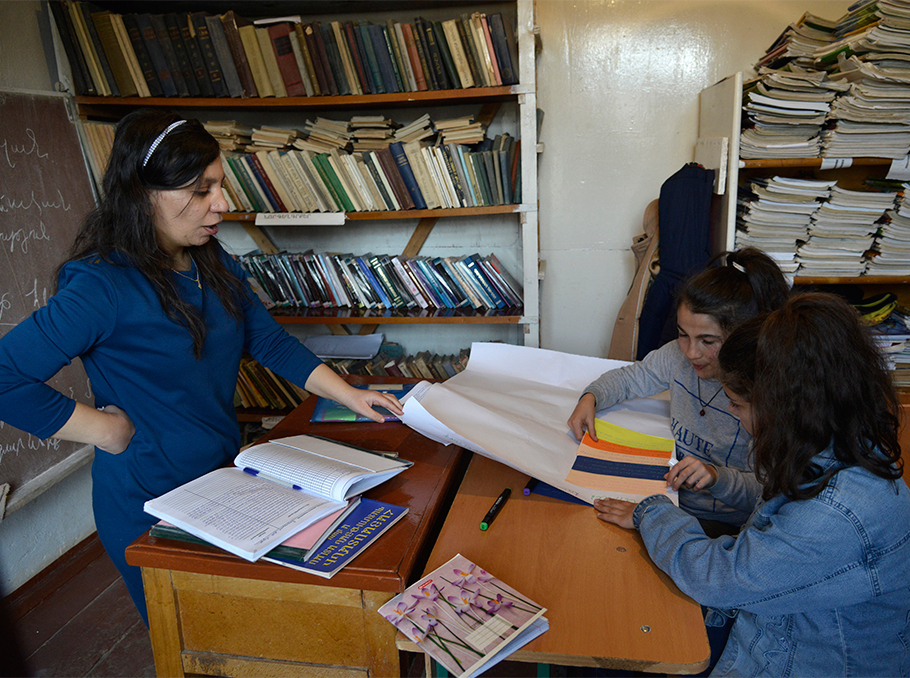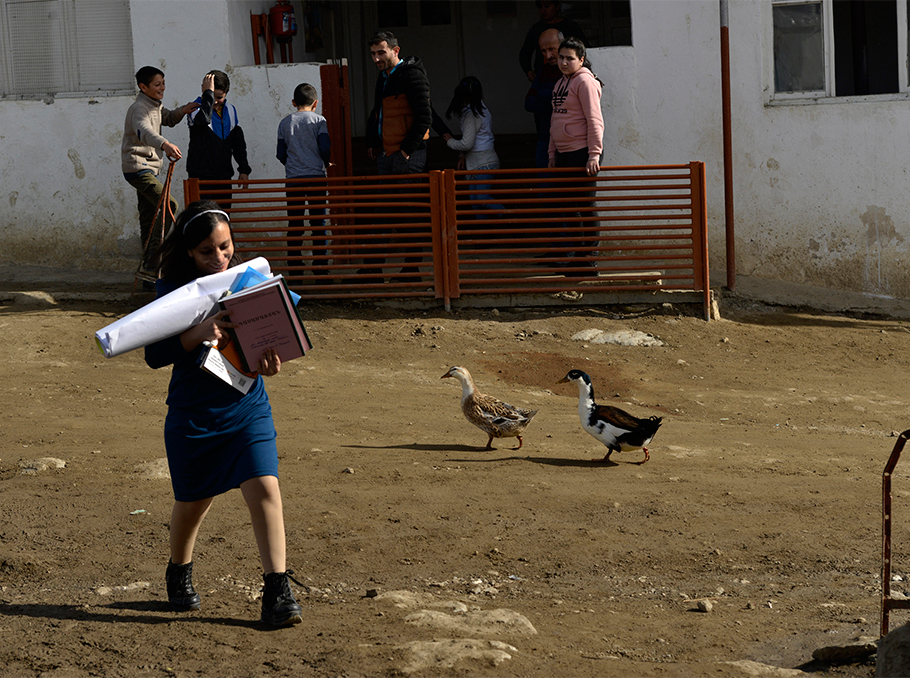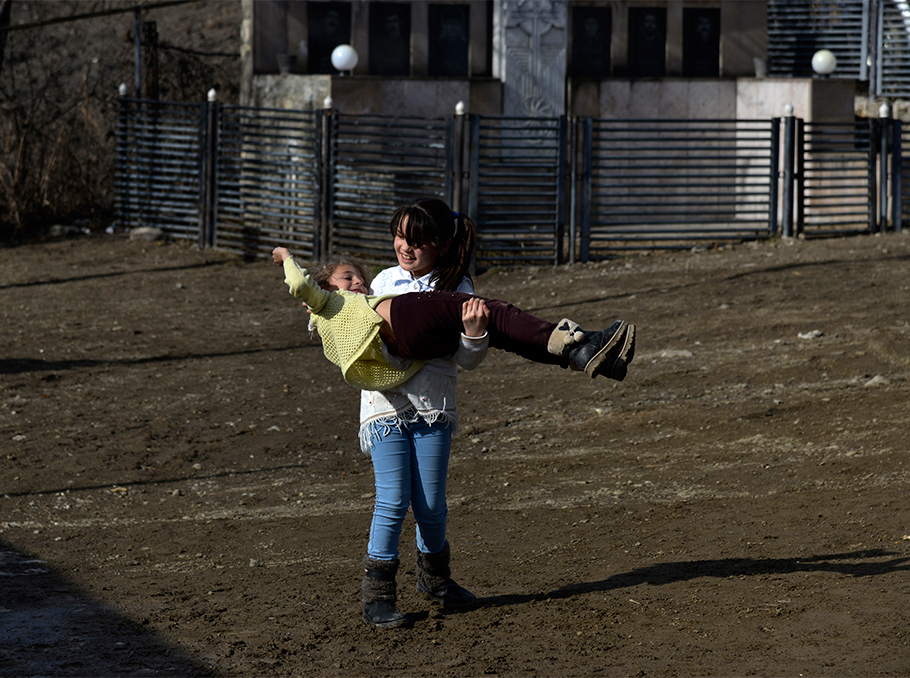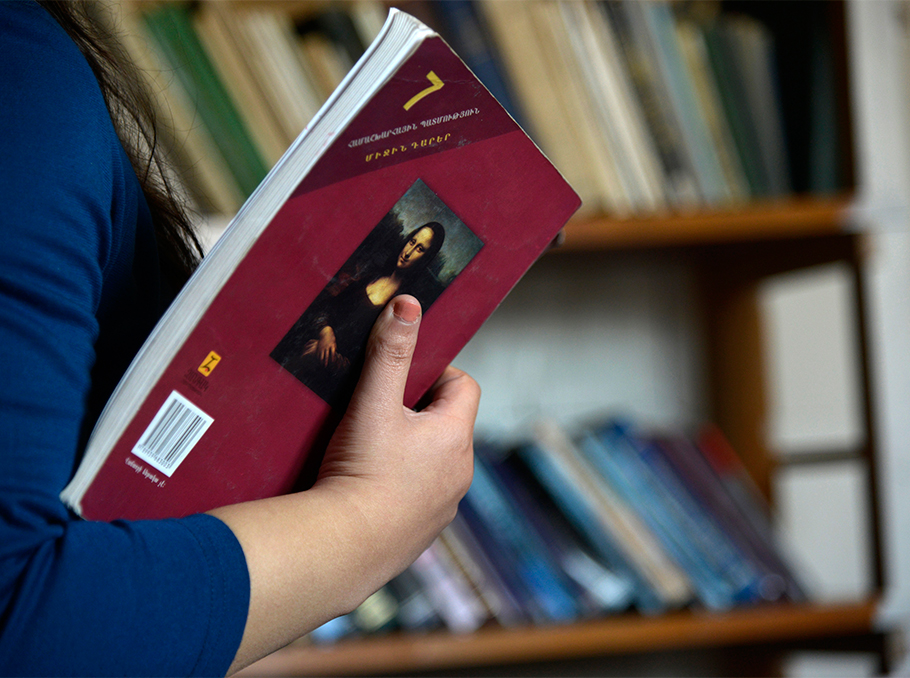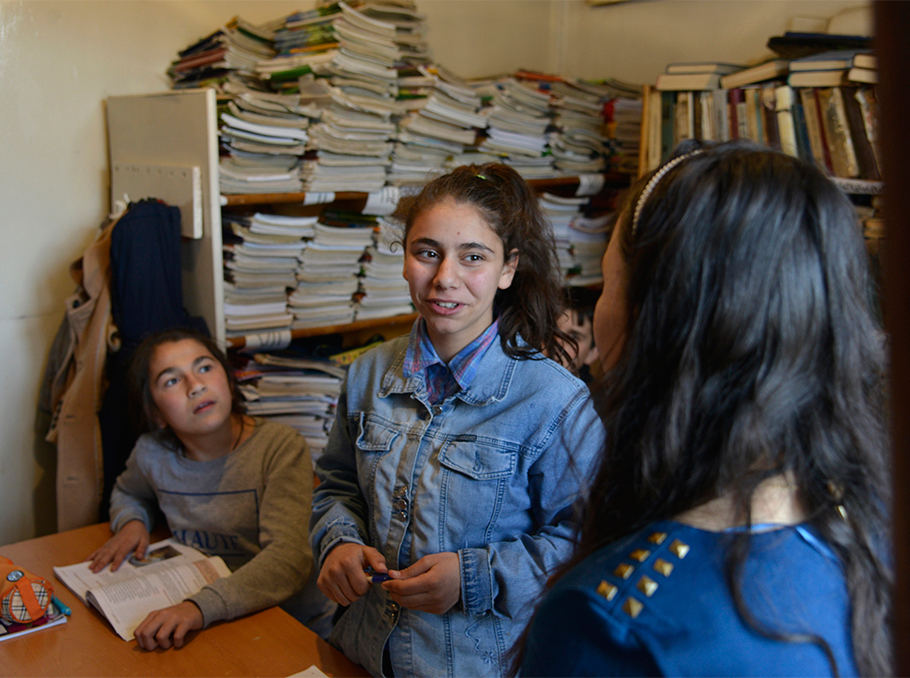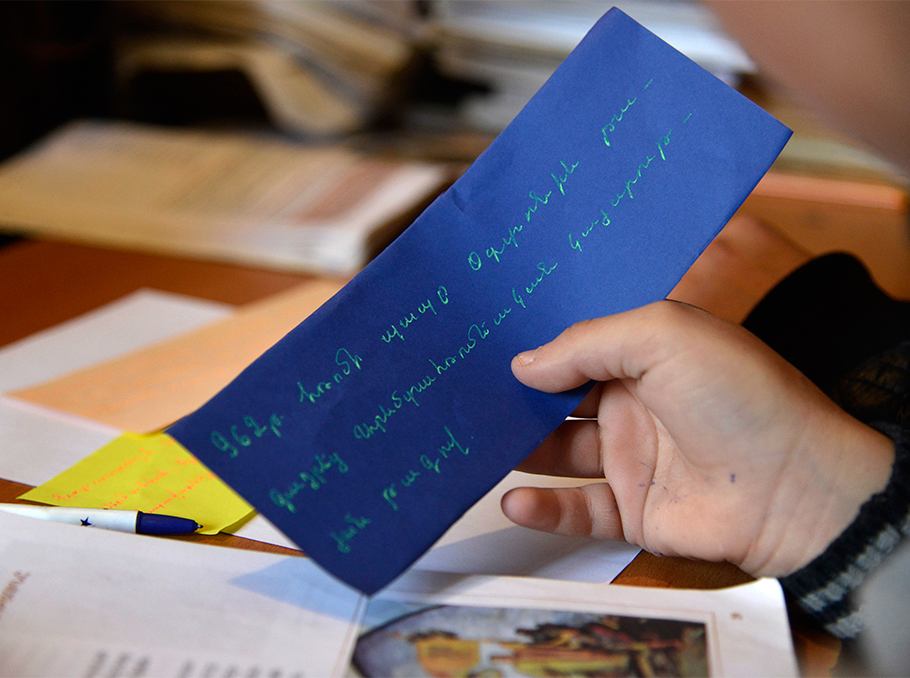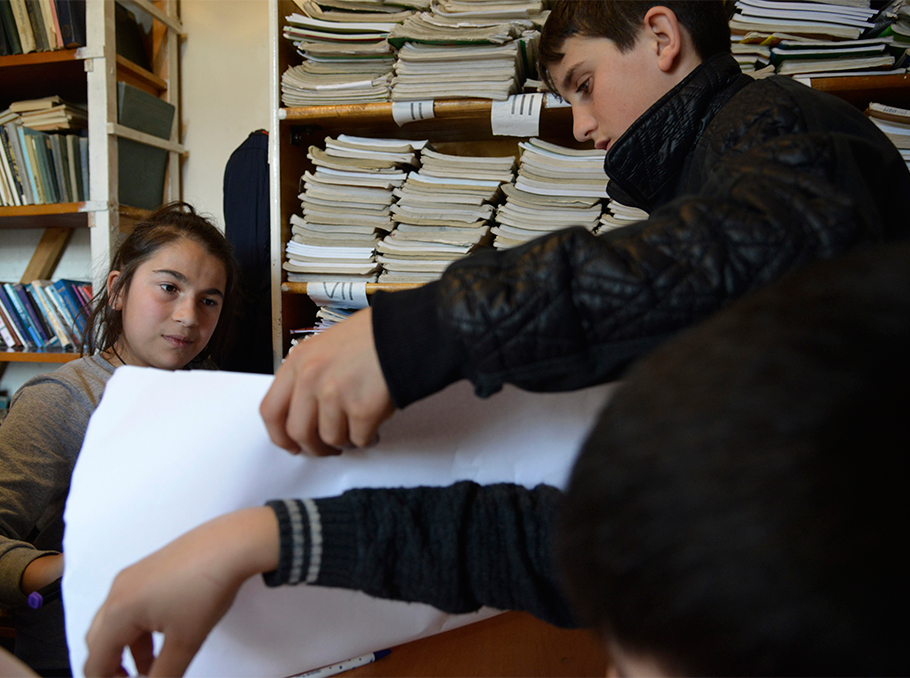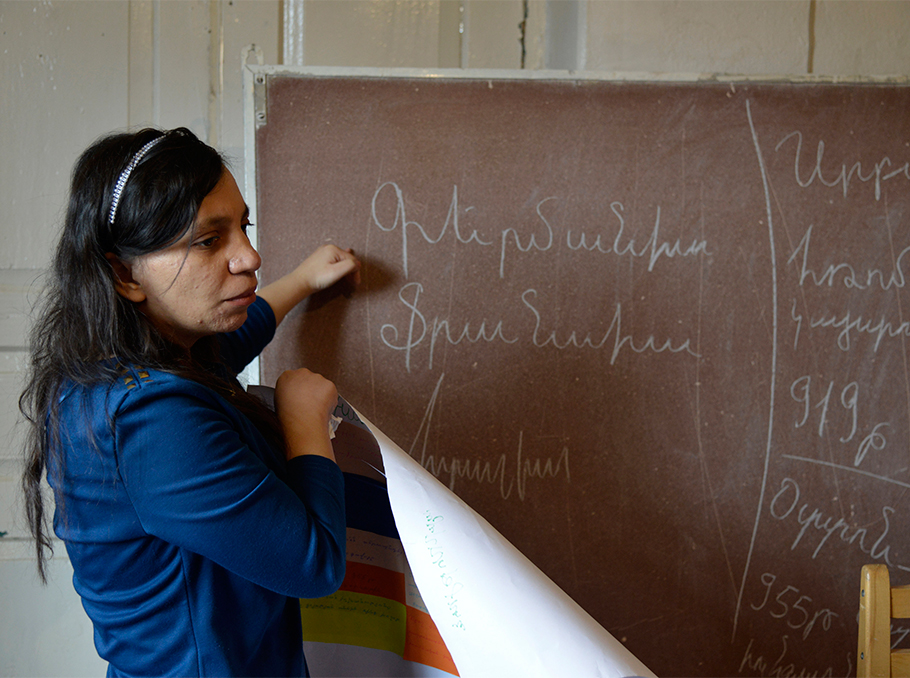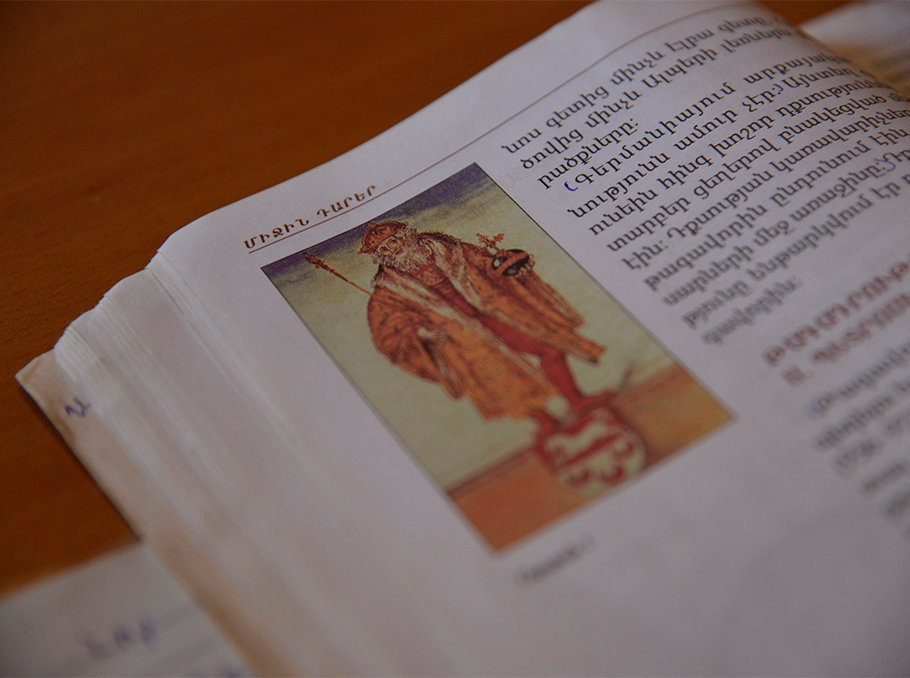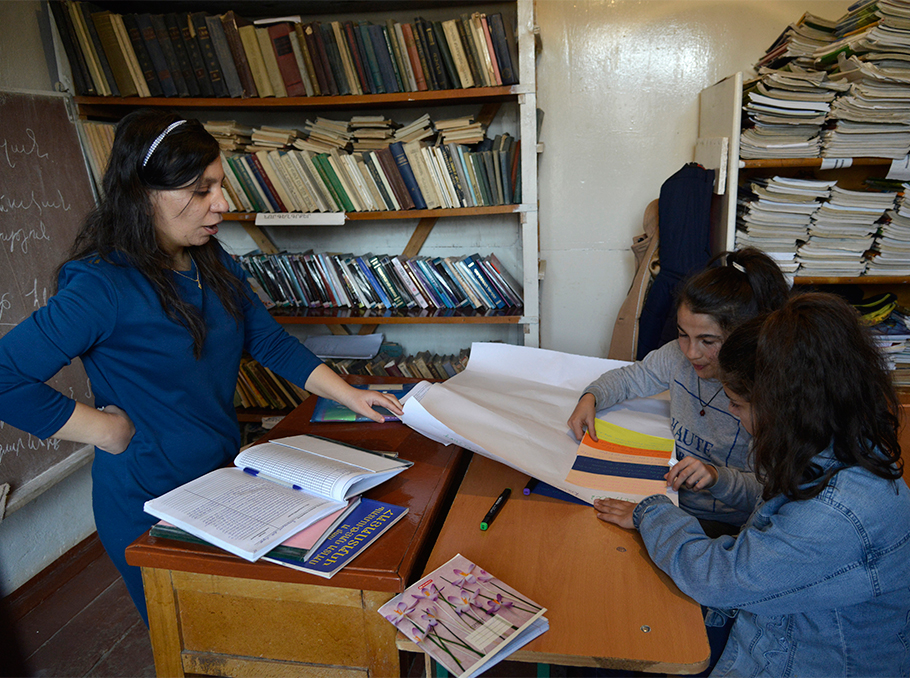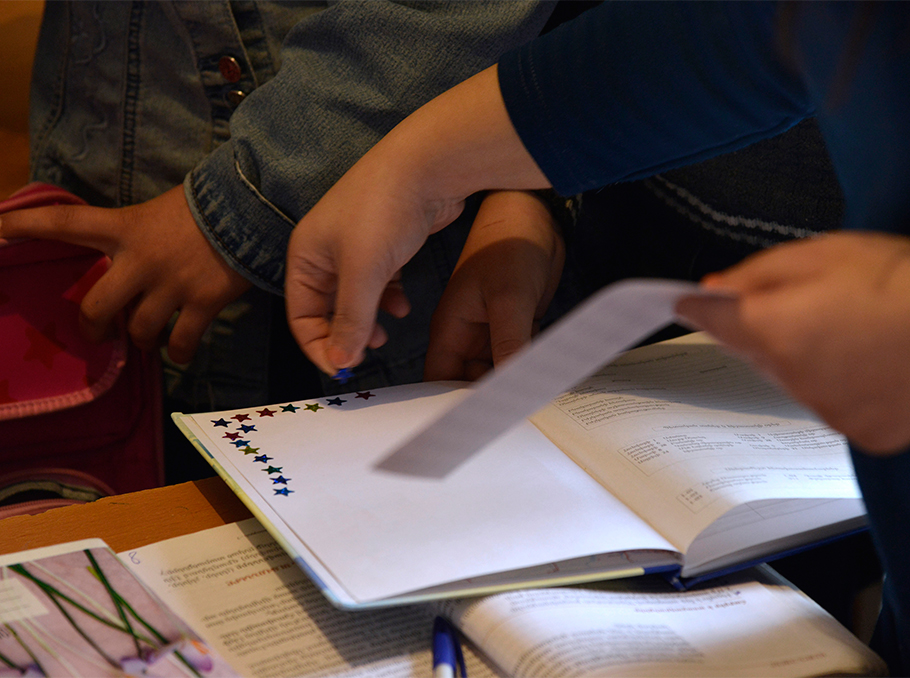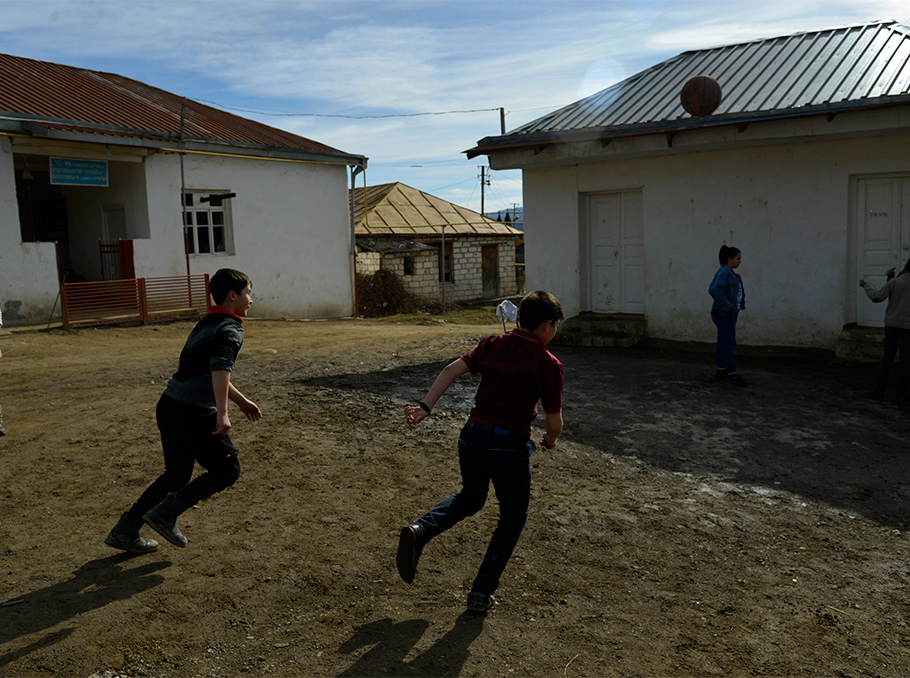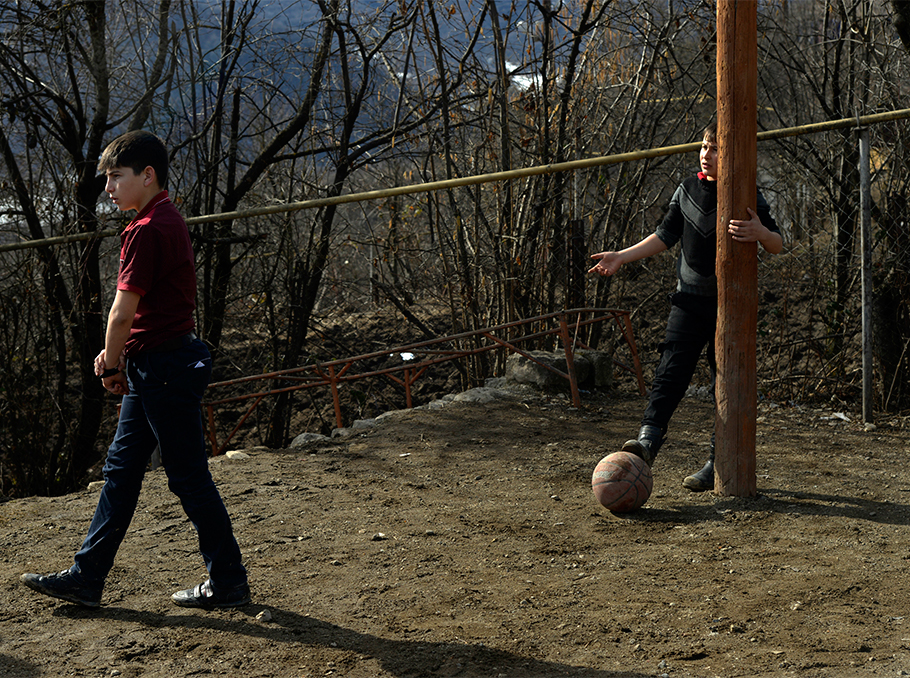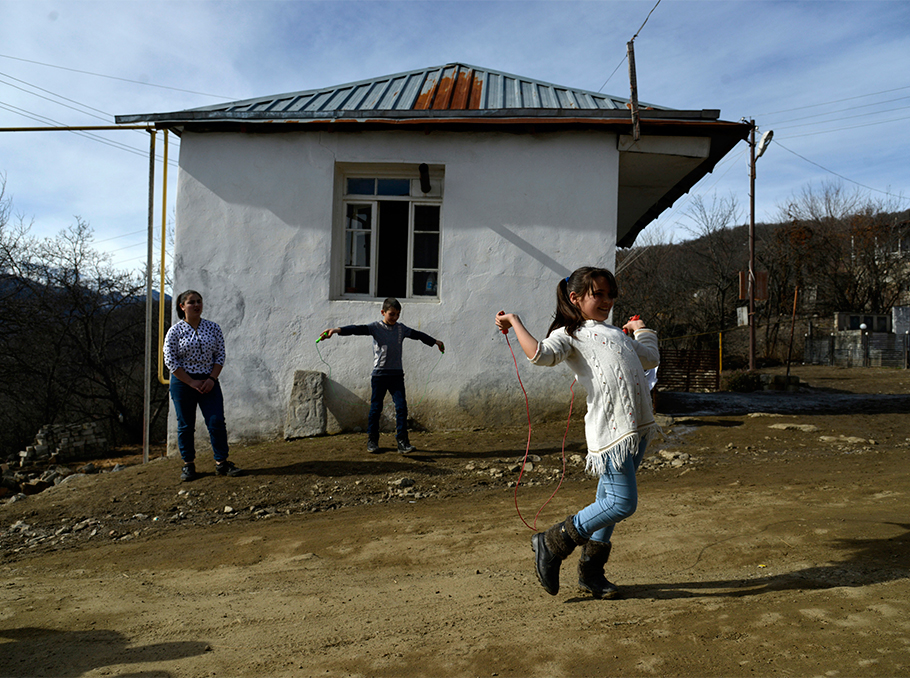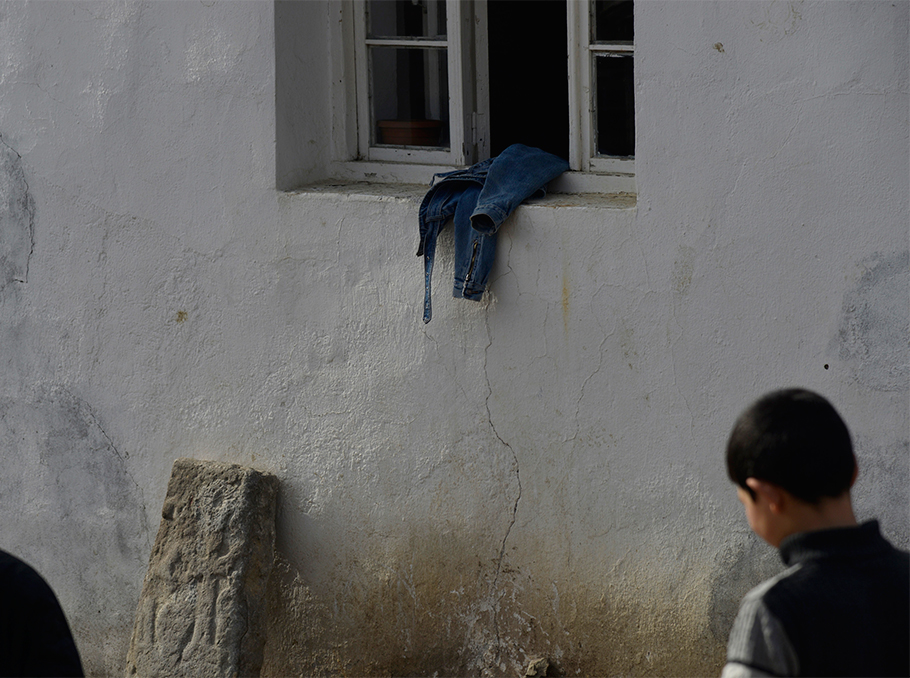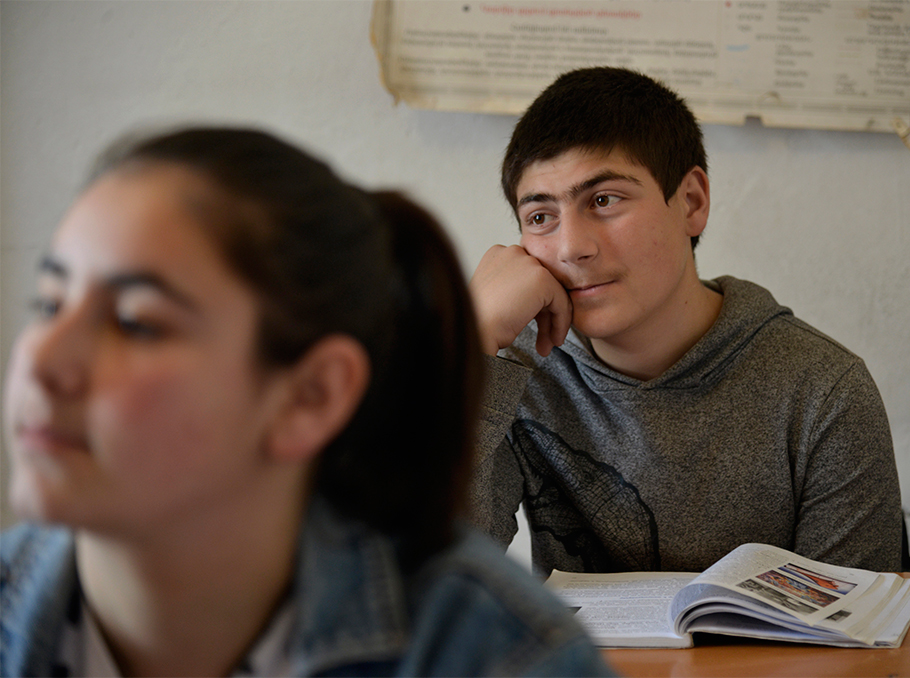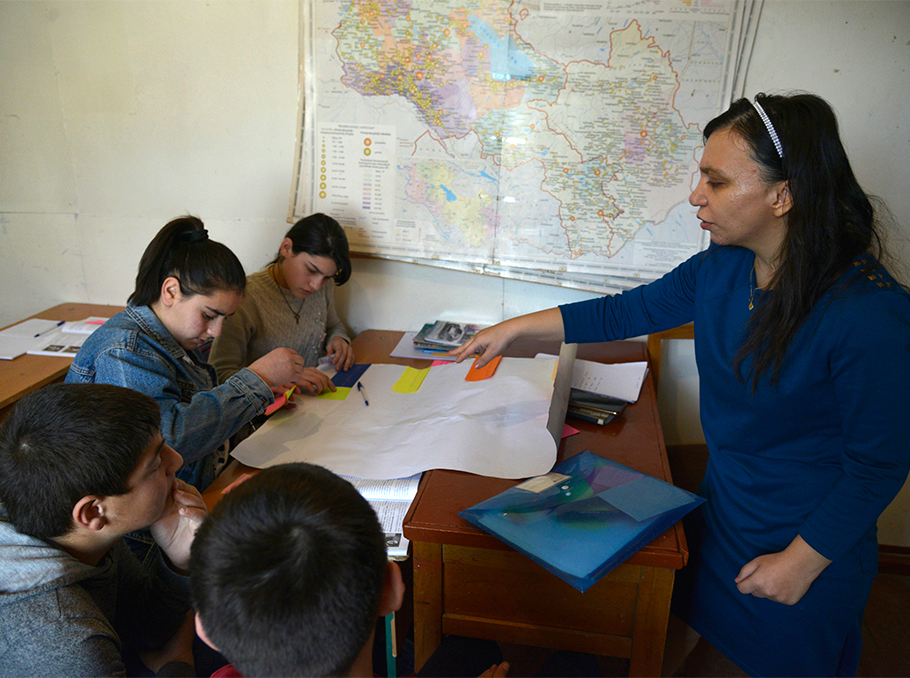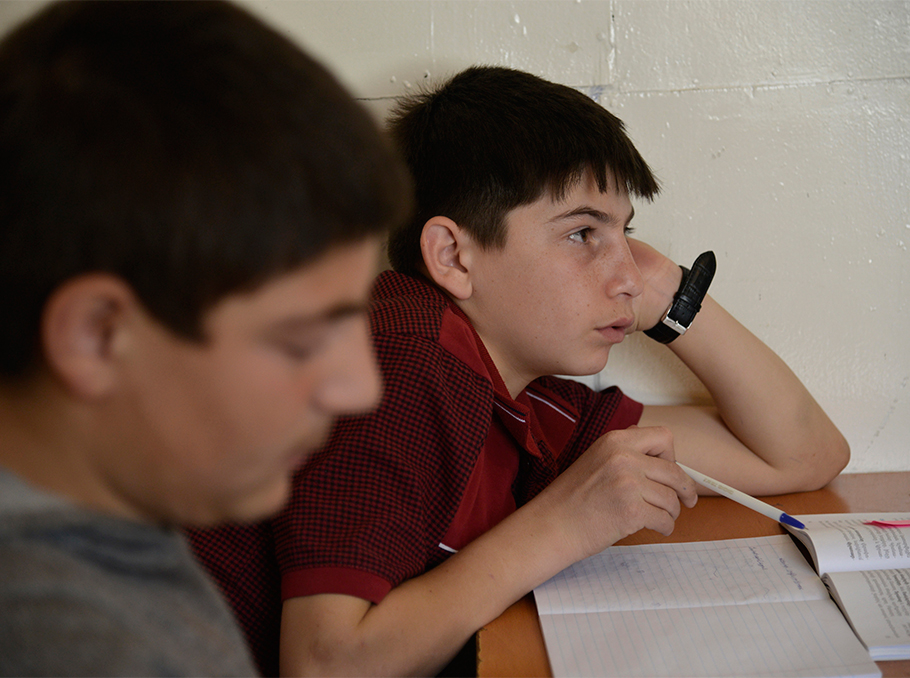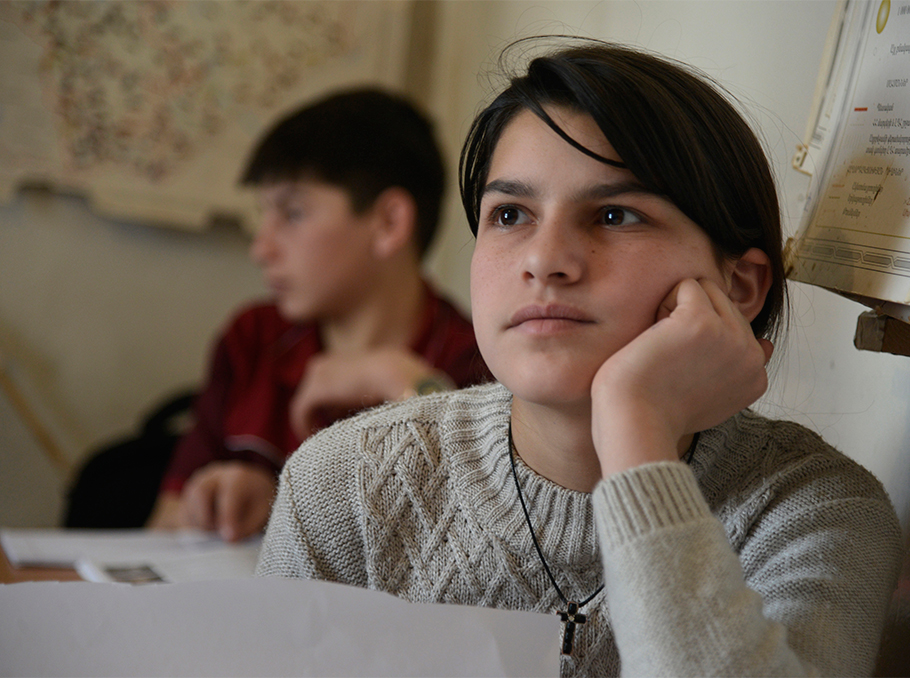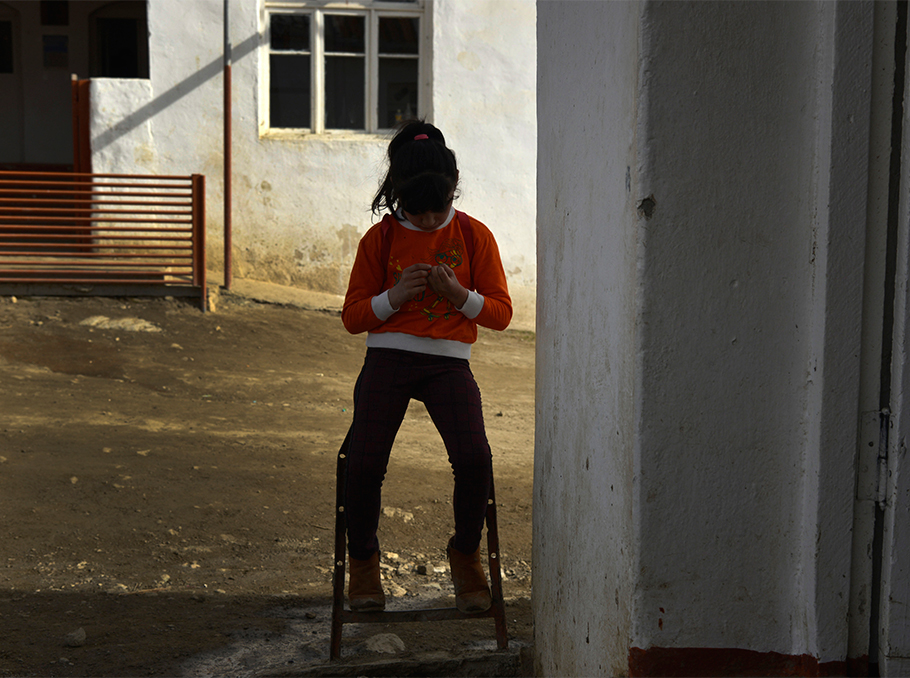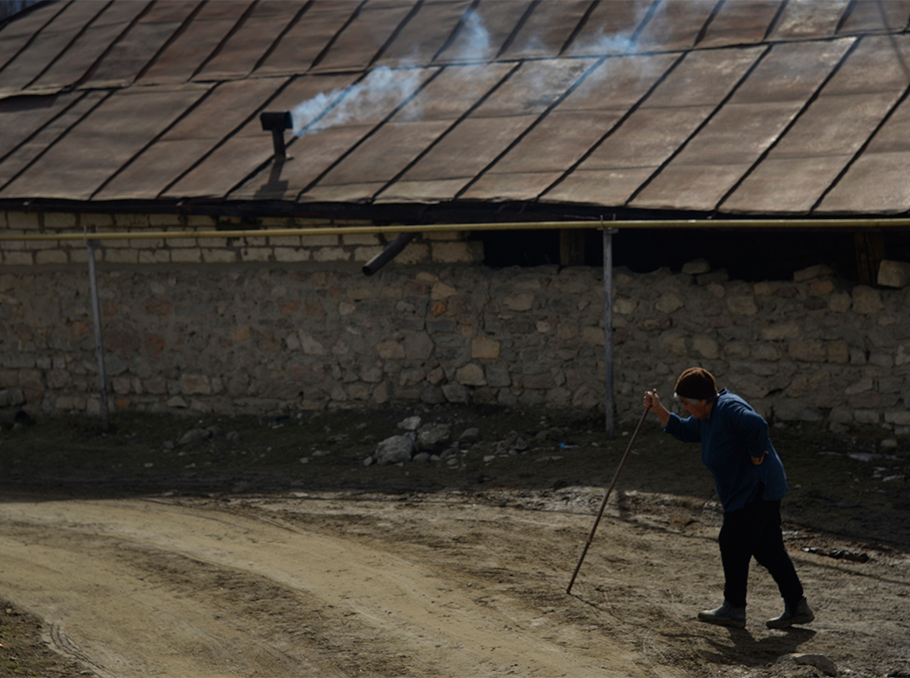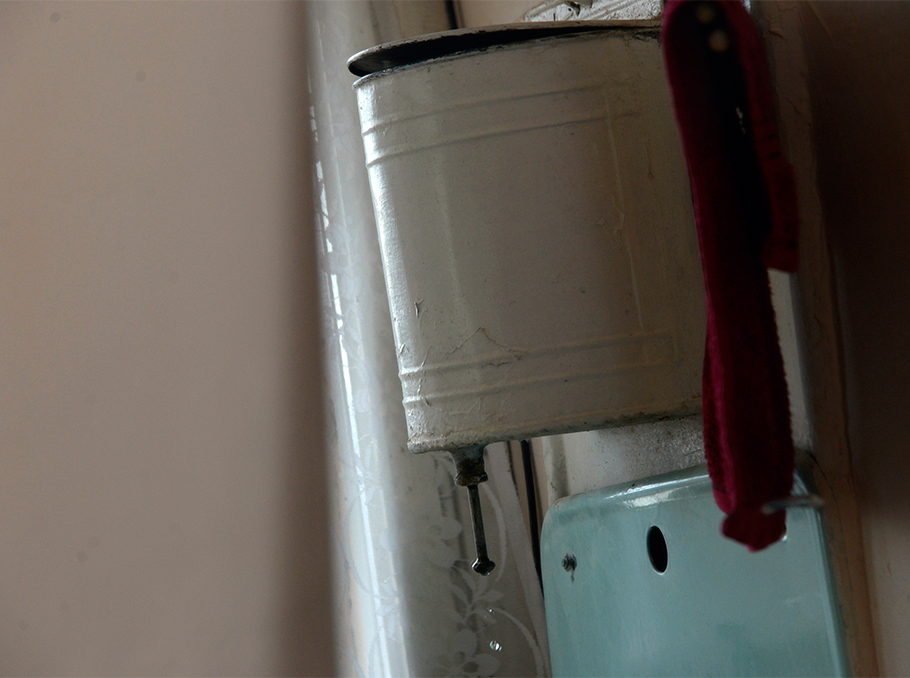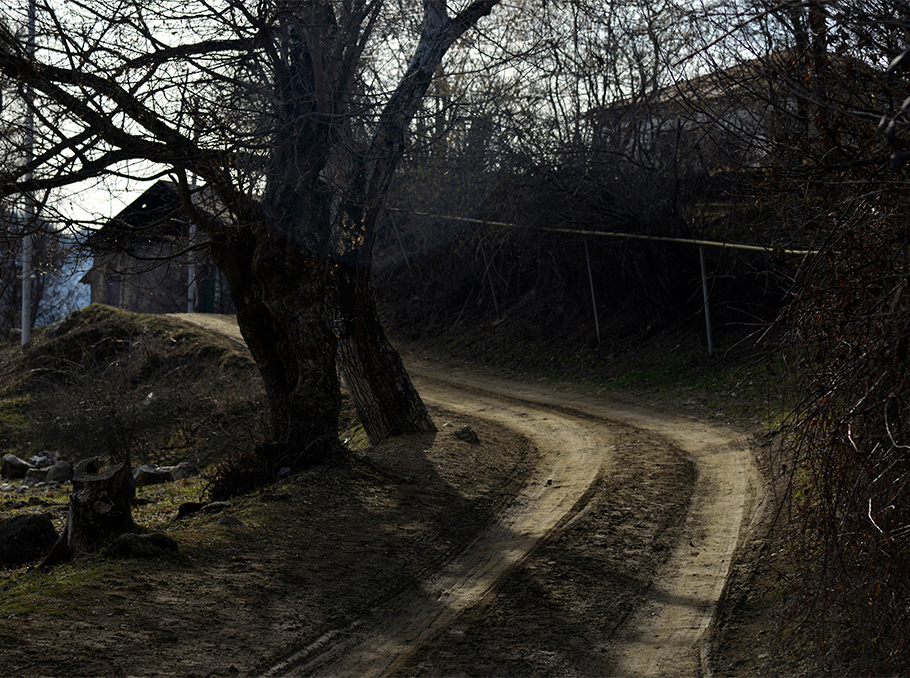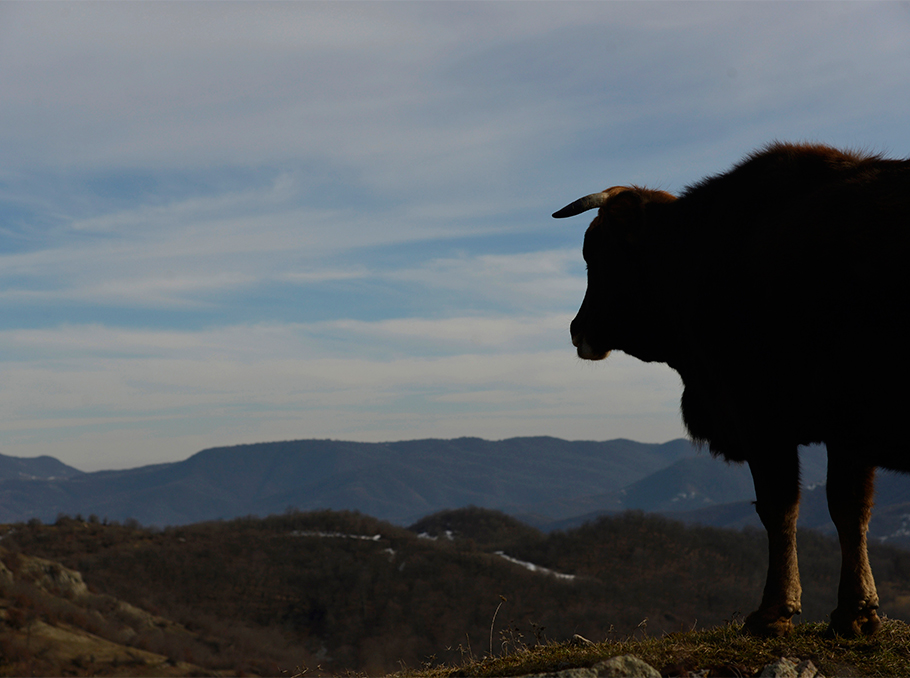The bell above the entrance to Shahmasur school rings at 8 o’clock in the morning to wake up the village, also when the electricity is off - to announce the beginning and the end of classes.
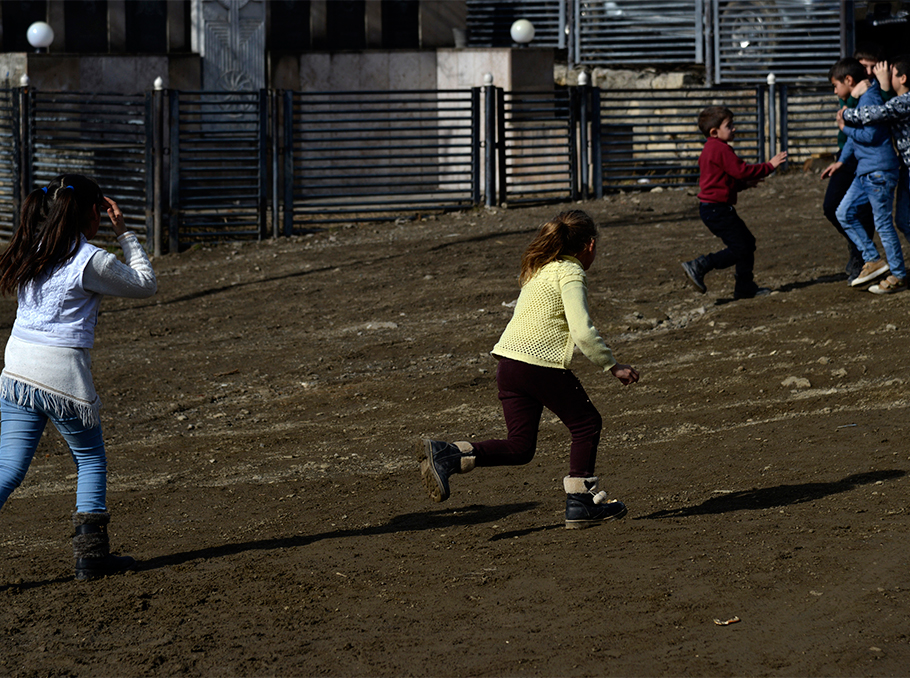
Photo: Vaghinak Ghazaryan/Mediamax
The bell is very symbolic for this village located in the Martakert region of Artsakh. One of the rich villagers bought it in Tbilisi (Georgia) back in 1905. He hung it in the village church and asked the priest of Gandzasar to teach the children to read and write. Unfortunately, due to Armenian-Tatar clashes his wish remained unfulfilled.
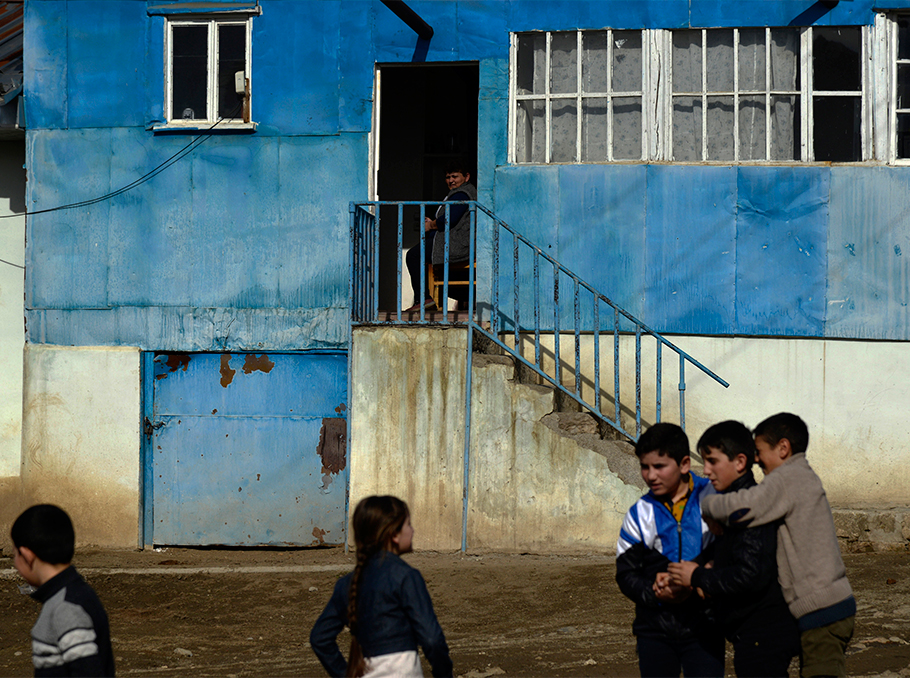
Photo: Vaghinak Ghazaryan/Mediamax
The first classroom opened in the village twenty years later. Those who had a two-story house provided the first floor for classes. The number of students kept growing year by year, but the school still does not have a building. The club and the nearby shop have been adapted for 6 classrooms, a library and a teacher’s room. The classrooms are enough “thanks” to combined classes.
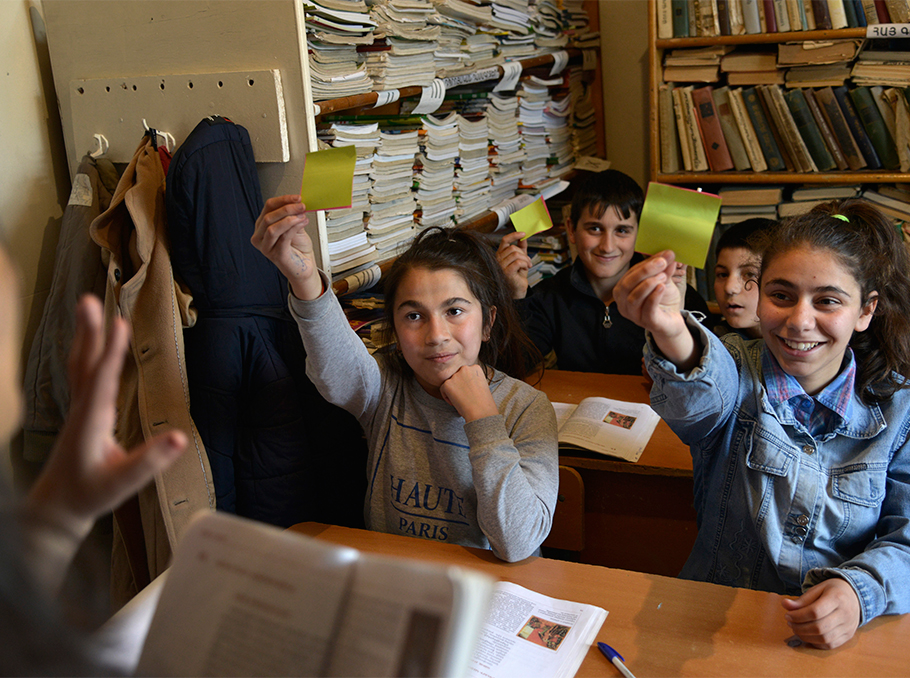
Photo: Vaghinak Ghazaryan/Mediamax
The state has promised to build a building for the village’s 8-year secondary school in 2020. The draft was ready, but never implemented.
“I woke up on Sunday to the sound of explosions. I thought the windows had broken. I fled the room half-asleep but couldn’t figure out what was going on. At that moment, my neighbor called and said: “A war has started, get dressed quickly, we are going to a shelter. And the horrors began.”
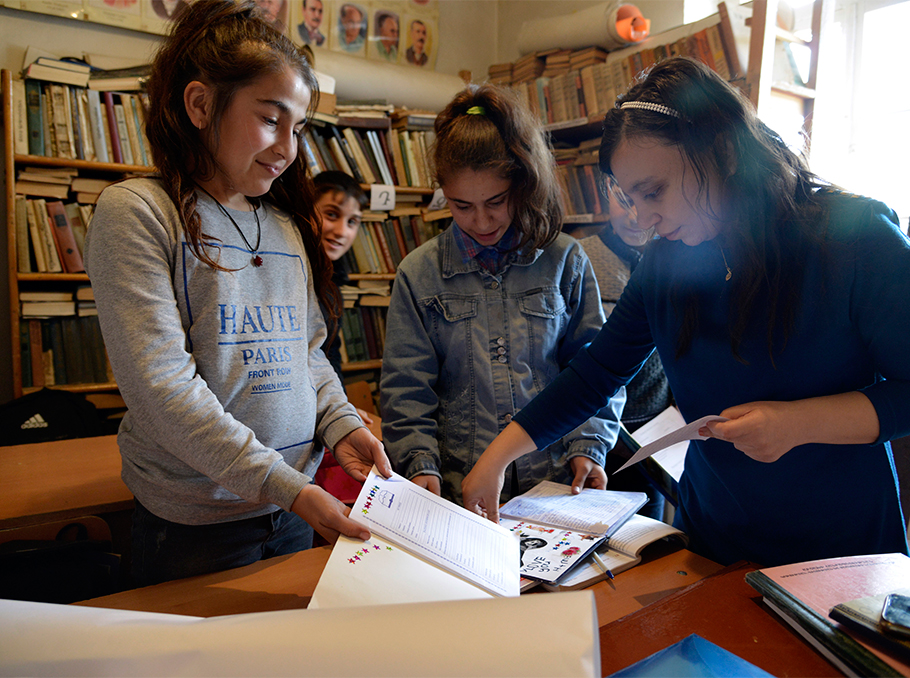
Photo: Vaghinak Ghazaryan/Mediamax
It is already the second year that Elen Nazaryan has moved to Artsakh through Teach For Armenia Leadership Development Program. She teaches history at Shahmasur school. People in Artsakh never forgot the war, but what happened on September 27 was so unexpected that even after hearing the explosions they couldn’t imagine it was a war.
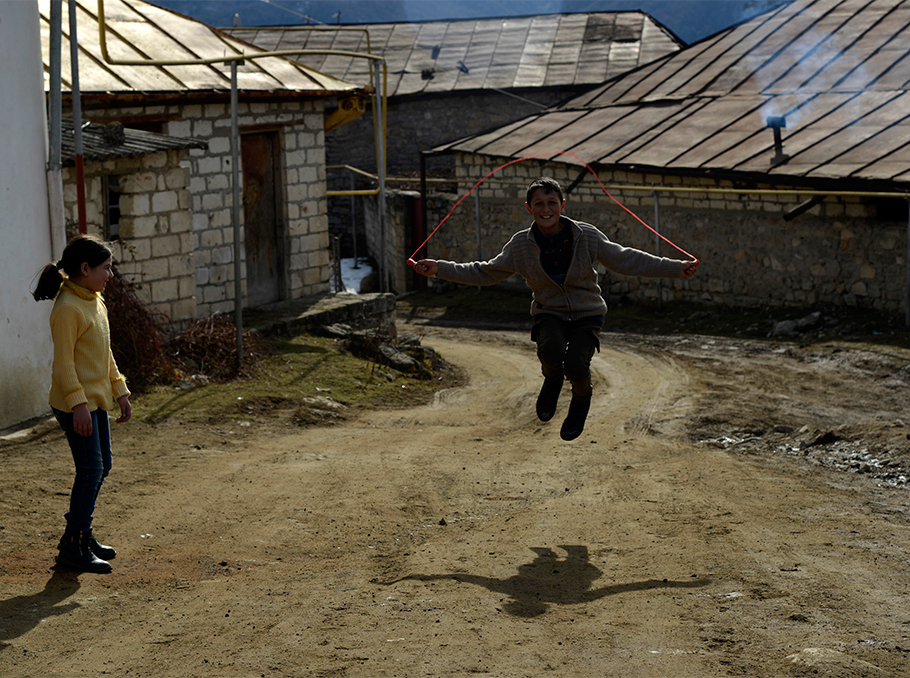
Photo: Vaghinak Ghazaryan/Mediamax
Although classes were interrupted, Ellen stayed in Shahmasur for another week. There were still children left in the village who needed help.
“The children were scared to death, especially my neighbor’s. Their father went to war on the very first day, and they cried all the time. I stayed back to calm them down, I talked to them and engaged them in various activities to distract them. We were worried, anxiously waiting for some news, and we understood that it was not a couple of shots. Everything was much more serious. These were really, really hard days.”
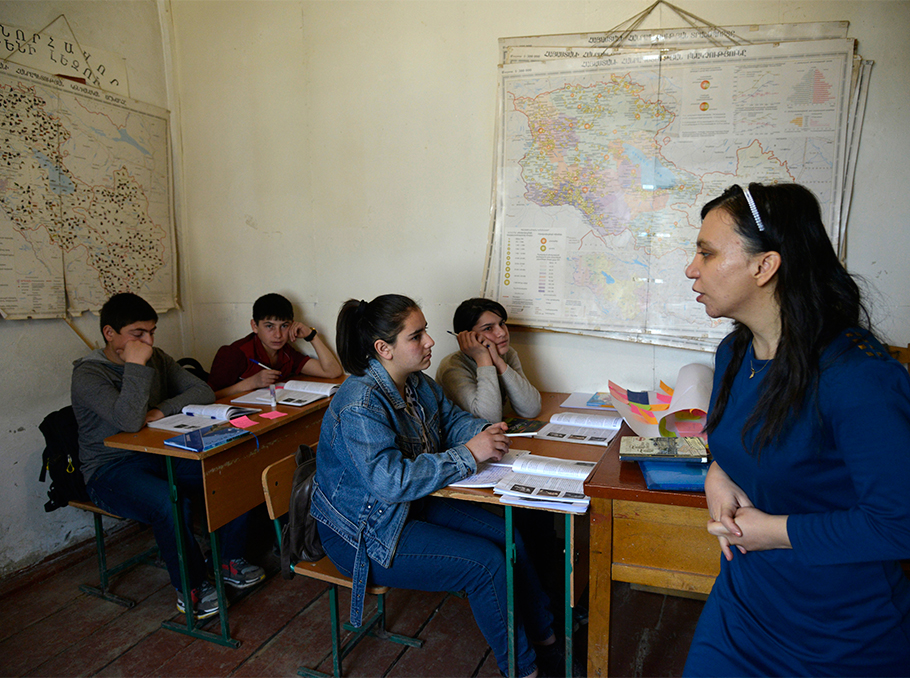
Photo: Vaghinak Ghazaryan/Mediamax
The head of the village insisted Elen stay at their house overnight, so that she was not alone. Ellen returned to Yerevan on October 3 with her neighbor and her 3 children. They lived in Ellen’s house. Throughout the war, she has been in touch with her students and fellow villagers, keeping tabs on their whereabouts and needs.
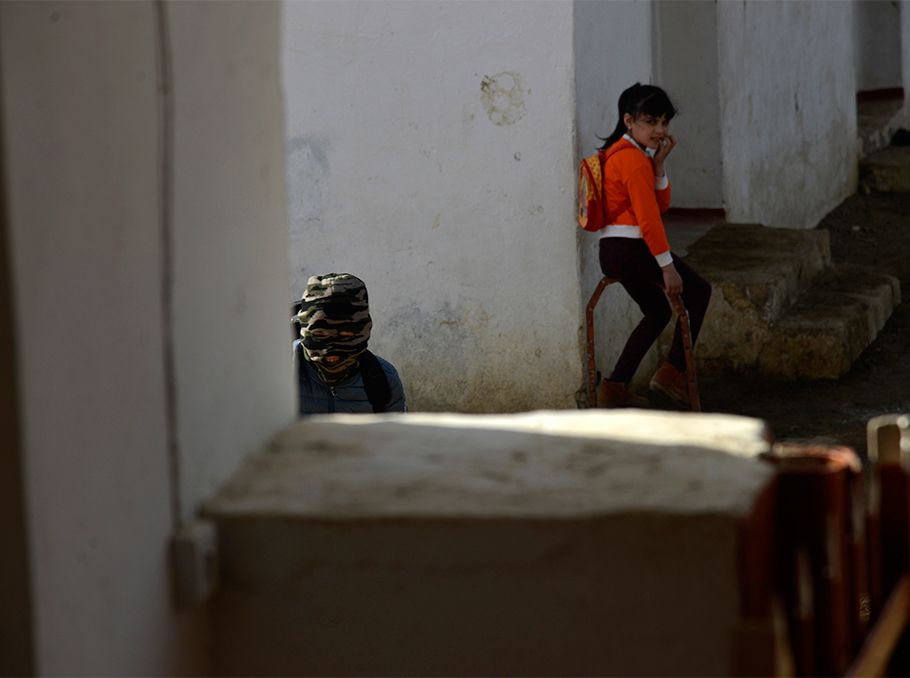
Photo: Vaghinak Ghazaryan/Mediamax
The children and women mainly moved to Armenia, but the village was not emptied. People stayed and helped out those who were on the frontline.
“I sent my daughter and little son to Armenia, while my elder sons, my husband and I stayed here. I was worried, but I couldn’t leave the village, my husband, because he is the head of the community. My neighbor and I baked bread every day, sent it to the frontline, brought clothes and food for servicemen. There was basically no electricity, we learned the news from people who came and went or read it online when the electivity was on,” says Lianna Baghdasaryan, who is a math teacher.
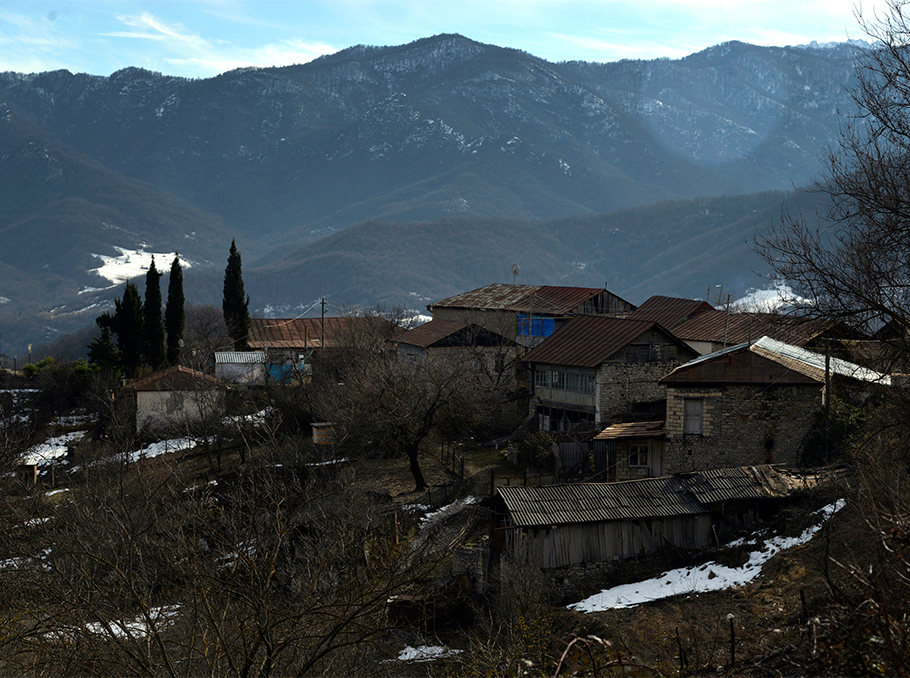
Photo: Vaghinak Ghazaryan/Mediamax
Fortunately, the village was not damaged in the war. The population, about 180 people, mostly returned, and new families who had lost their homes also moved to Shahmasur.
“Turks and Azeris have never, in any century, lived in our village. Our gorge was pure, neither the Turks nor the Persians have ever conquered our gorge. It is invincible,” says school principal Areg Avagyan.
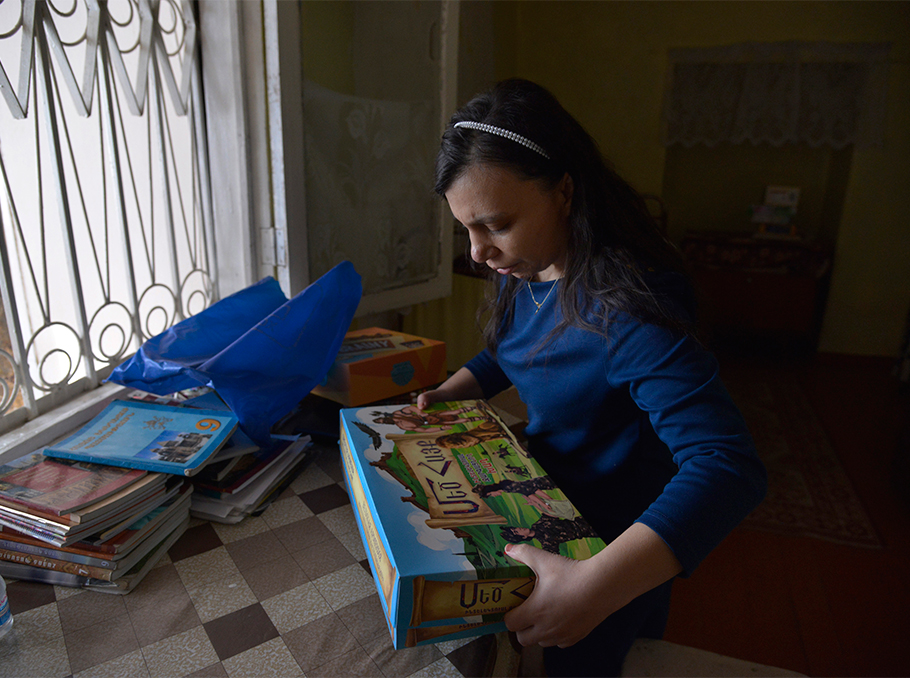
Photo: Vaghinak Ghazaryan/Mediamax
Despite her family’s objections Elen returned to Shahmasur. This was her last academic year within Teach For Armenia in Artsakh. She decided to celebrate the New Year in the village and brought the decorations in advance, but the holidays went unnoticed.
The school has 31 students. The war has disrupted the educational process, and even months later, it is hard for the children to focus on their studies.
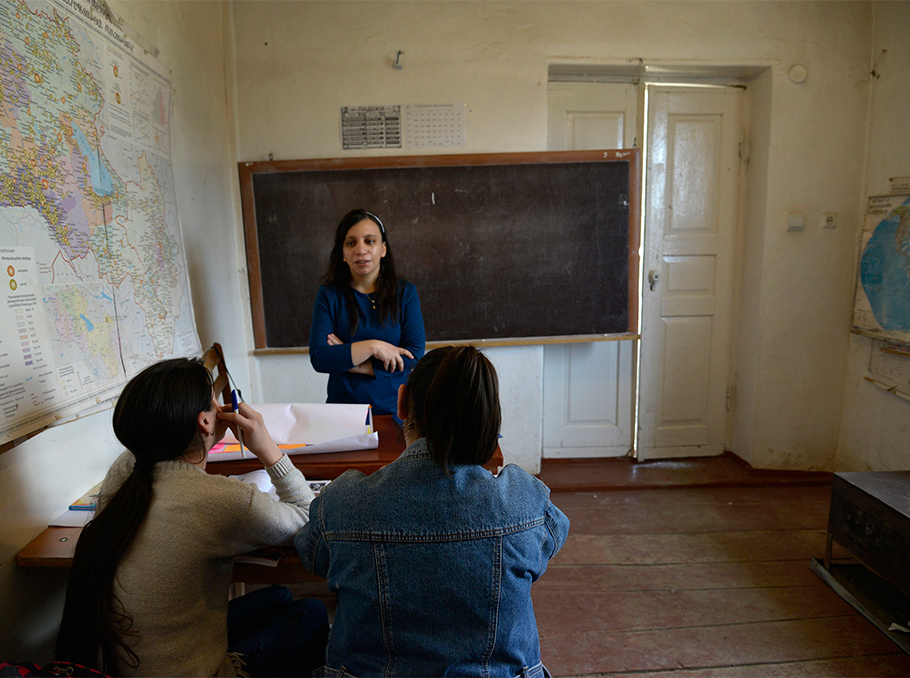
Photo: Vaghinak Ghazaryan/Mediamax
“The children became aggressive, unwilling to listen and study. Parents are also desperate; the situation is uncertain. Now I have to start working with children from scratch. Especially the high school students have become more mature and serious. It seems nothing has changed, but the atmosphere used to be more buoyant, lighter. Now there is something heavy in the air that makes communication and work difficult.”
Ellen is a pedagogue and has worked at a special school. What she lacked in the city, she decided to find in the village. When applying to Teach For Armenia, she mentioned that she wanted to work in Artsakh.
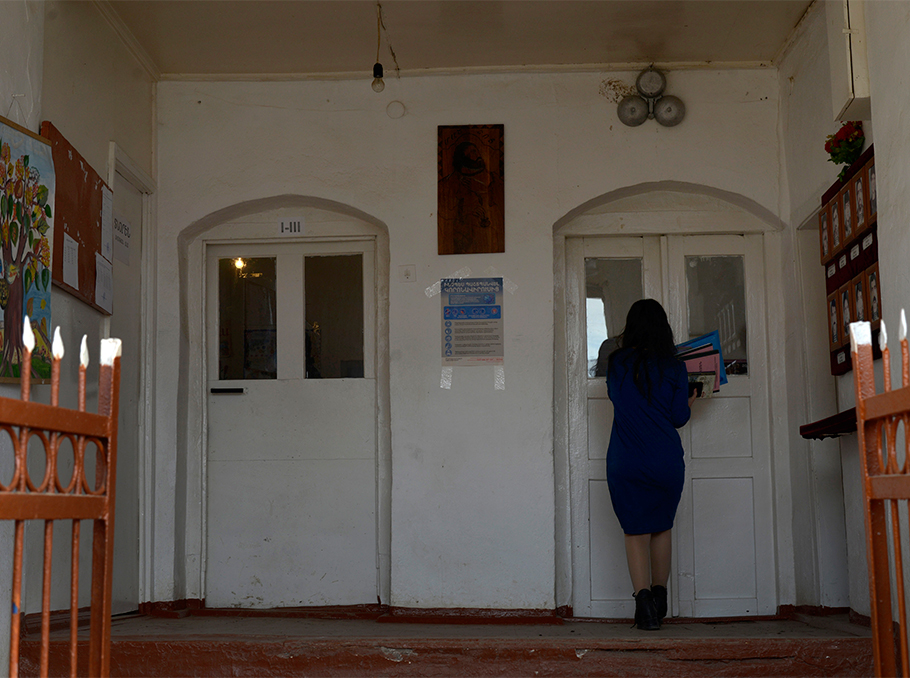
Photo: Vaghinak Ghazaryan/Mediamax
“A 3-day visit was organized for those who wanted to come to Artsakh. Standing on a hill in Gandzasar Monastery, I said that the participants who would work here would be blessed.
The day came when they had to announce where we were going to work. It was like a draft lottery for military service. I entered the room, came out and everyone started asking me where I was going. I have never heard of Shahmasur, and later when I checked it out on the map and saw that it was in Martakert, I was so very happy. I said - this is my place.”
They rented a big car, and in August 2019, together with her whole family and her belongings, Elen came to Shahmasur. Her parents were worried about how Ellen would manage on her own.
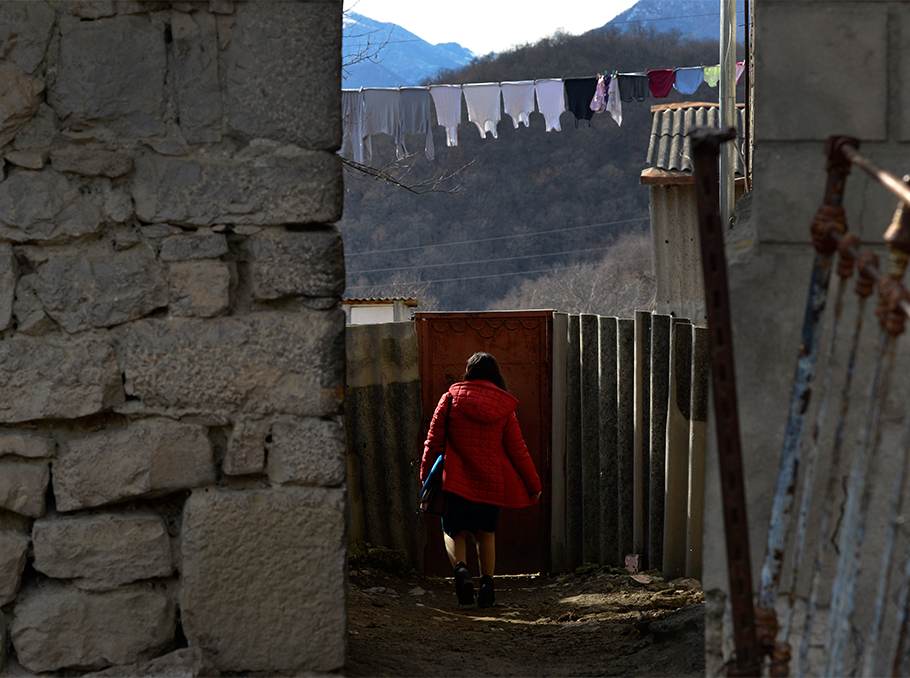
Photo: Vaghinak Ghazaryan/Mediamax
The teacher’s day passes in a blur, there is no time to be bored. Elen comes home from school, takes a breath and goes back for English and history group classes. She has friends in the village, she visits them and sometimes they organize gatherings. But more often she enjoys her time alone.
“You will see what a beautiful village it is when you visit,” Ellen said over the phone when arranging the meeting.
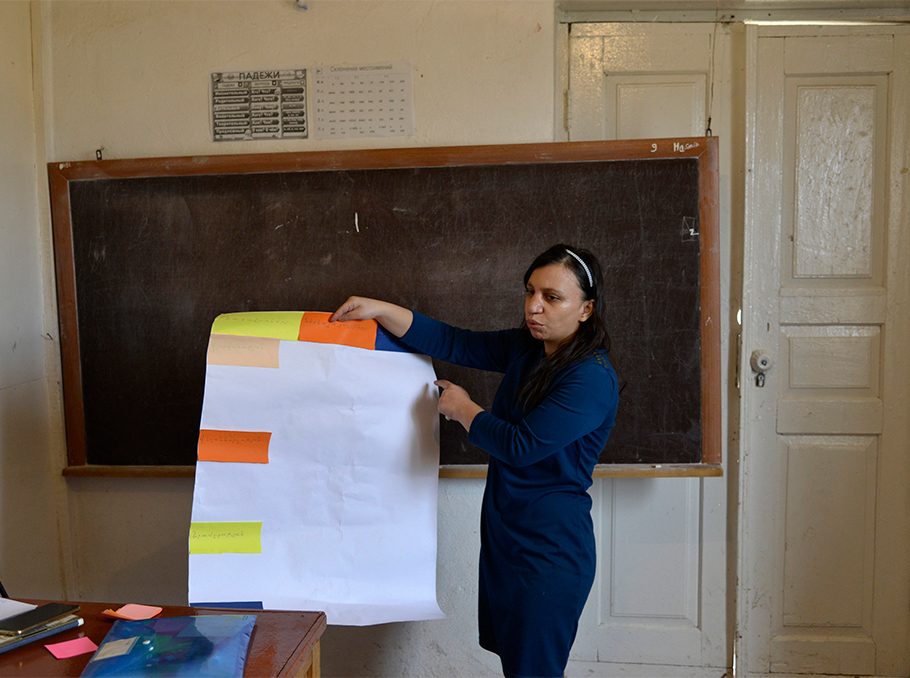
Photo: Vaghinak Ghazaryan/Mediamax
There are different explanations for the name Shahmasur. Residents prefer the “big rosehip”. The rosehip crop is abundant in the village, the rosehip vodka is the best, which they definitely treat to those who visit the village.
Teachers sitting next to each other in a tiny school teacher’s room talk about the small village with rich history. They proudly say that Raffi wrote about Shahmasur in “Khamsa Melikdoms” novel. They list the important historical events of the village, the famous monuments. They say there are many old khachkars in the village, but the 13th-14th century church was not preserved.
“In Soviet times the church was considered an ancient civilization, and our naive villagers thought there was no God. They took down the stones of the church and built their houses as if there were no other stones that could have been used. They failed to preserve the church,” says the school principal.
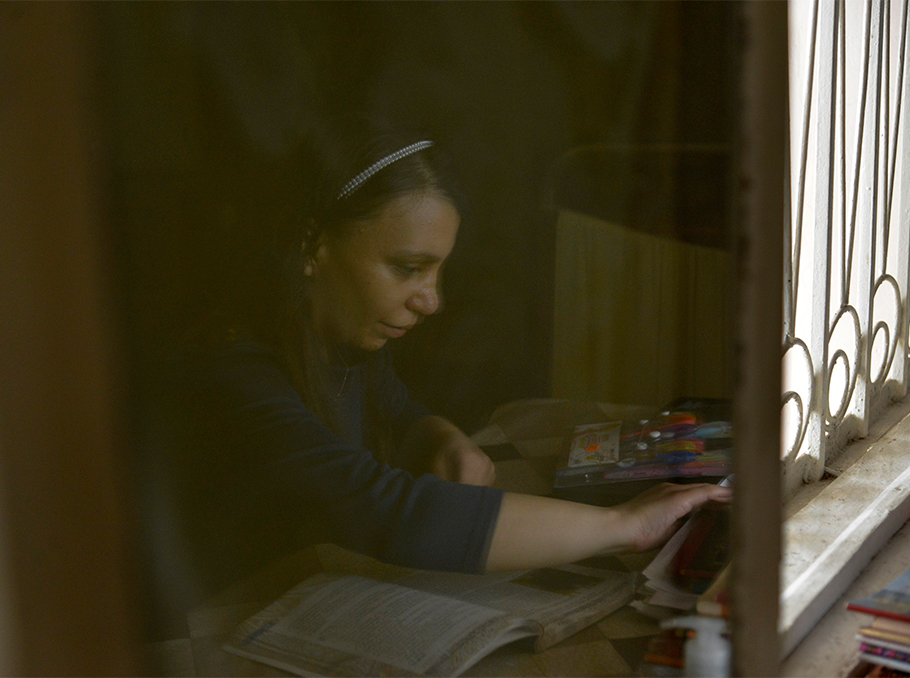
Photo: Vaghinak Ghazaryan/Mediamax
Then they start talking about the latest war, the debilitating and disheartening reality.
“We have what we have, all that remains is to learn the lessons, and rebuild our land again. It is our duty,” they say.
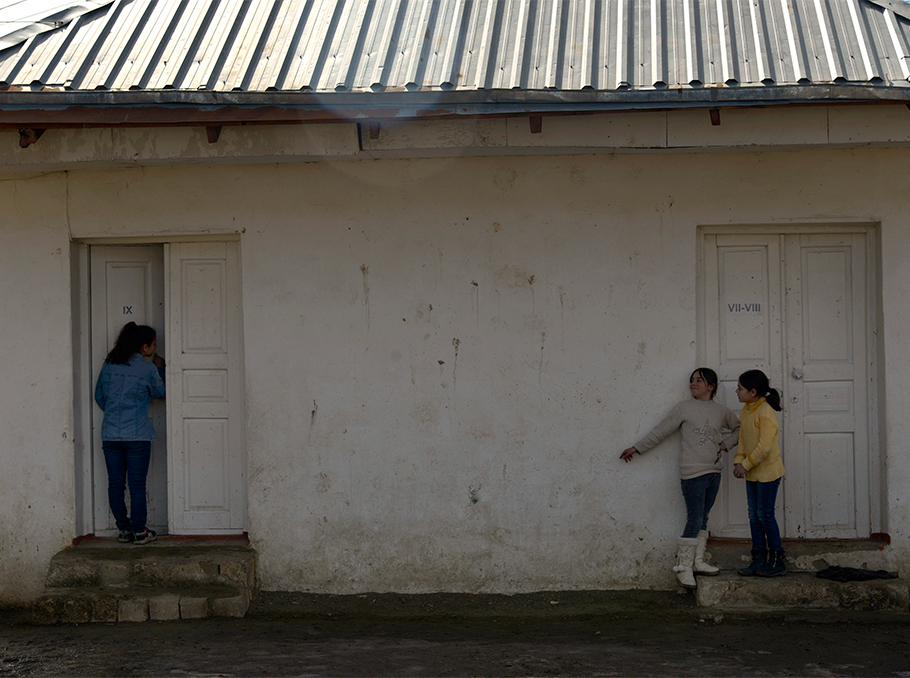
Photo: Vaghinak Ghazaryan/Mediamax
The bell rings and the children go out to the school yard, into the center of the village. PE classes are also held here, because the school has neither a field nor a hall, nor is there any sports equipment. Everything is self-built and customized.
“The most important thing is that they do not bury themselves in their phones, they play in the village all day long,” says the director.
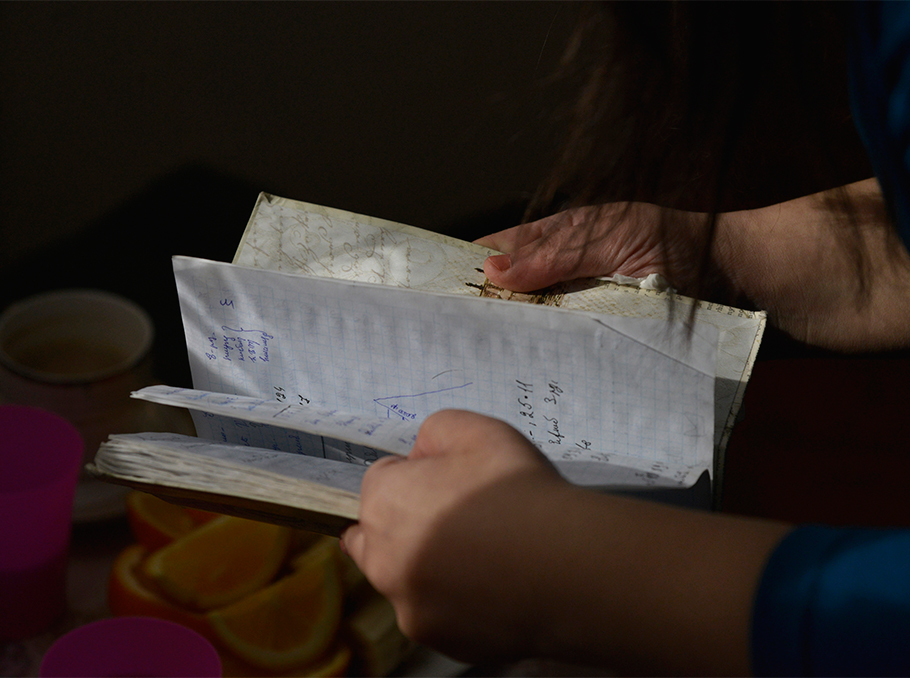
Photo: Vaghinak Ghazaryan/Mediamax
Ellen will complete the program in a few months. She shows a mountain she drew in a notebook on a particularly difficult day to calm herself.
“I climbed the mountain, now I am coming down. It was a little difficult to go up, and I figured the downhill would be easier, I would adjust, but it was just as hard.”
She says the challenges were more than she had expected. Professional and daily problems could be easily overcome, but the epidemic and the consequences of the war are much harder to get over.
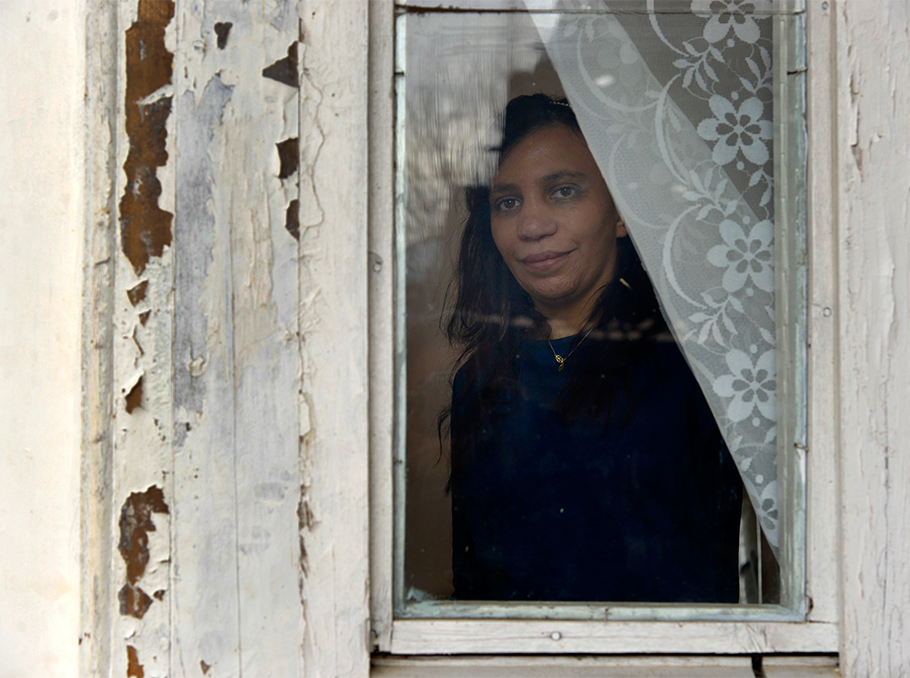
Photo: Vaghinak Ghazaryan/Mediamax
“I could have applied to the program sooner or much later, but I am thankful that I am teaching here during this period. My role was important here at this time, being with my students. Maybe after the war the children are not ready to take in all the knowledge I give them, but I am by their side, they see that comrade Ellen came back after the war, it gives them strength. For me, their appraisal and love is a victory.”
Lusine Gharibyan
Photos by Vaghinak Ghazaryan (especially for Mediamax)









